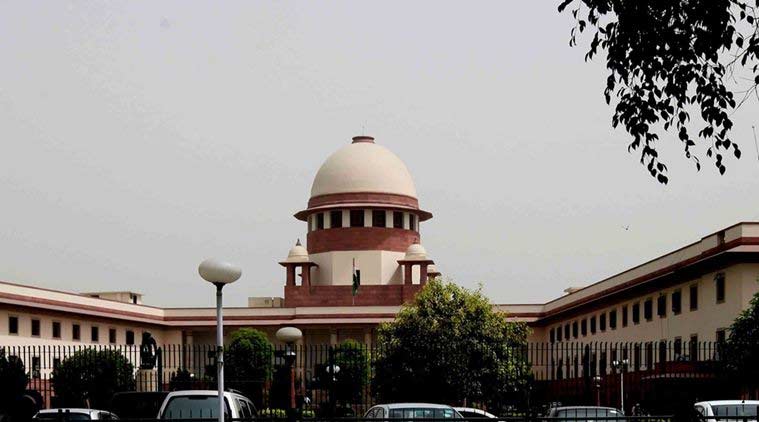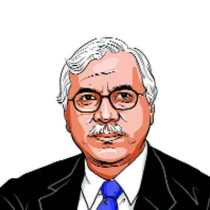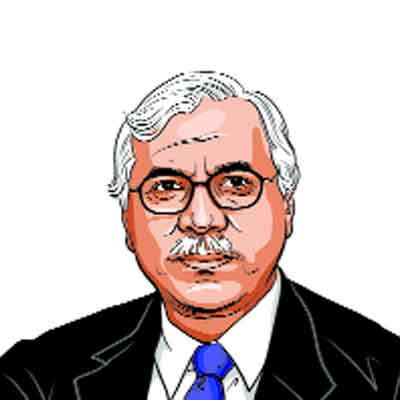Court’s lost chance
Election Commission has been seeking SC’s aid to stem criminalisation of politics. Its verdict falls short.

Tuesday’s verdict seems a missed opportunity by the Supreme Court, especially when seen in the light of the nation’s fight for free, fair and clean elections.
On Tuesday, the Supreme Court delivered its much-awaited pronouncement on the petitions asking it to bar politicians facing heinous criminal charges — like rape, murder and kidnapping — from contesting elections. A five-judge bench led by Chief Justice Dipak Misra said that the Court cannot play the role of Parliament. The CJI did express concern over the criminalisation of politics; something needed to be done urgently in this respect and the society is helpless to stem the phenomena, he said. But the judgment left much to be desired.
I am disappointed, but not surprised. I have, time and again, called the judiciary the guardian angel of democracy in general, and the Election Commission (EC) in particular. But this time, the SC has passed the buck to the EC, even though the Commission has been crying itself hoarse for the apex court’s aid for the past two decades. Parliament is obliged to make a law on the matter according to Article 102 (1) of the Constitution, but if history is anything to go by, that is unlikely to happen.
The bench pronounced that it is not in a position to enable disqualification of candidates who face criminal charges. It has, however, provided a slew of directions to curb the criminalisation of politics. First, while filing their nominations, the candidates must declare if there are pending criminal cases against them in courts. Second, political parties are also responsible for putting up details of criminal cases filed against their candidates on their websites. Third, Parliament must legislate on the matter to ensure that candidates with criminal antecedents do not enter public life or become lawmakers. Fourth, while filling the nomination forms, candidates must declare their criminal past and the cases pending against them in bold letters. Lastly, political parties should publicise the background of their candidates via the electronic media and issue declarations.
The recommendations, though welcome, have practical issues. Parliament, regardless of who is in power, has always been reluctant to legislate on the issue. Voters do not generally read the websites of political parties. The recommendation regarding publicity campaigns about the criminal background of candidates by political parties sounds counter-intuitive. Why would they actively publicise anything that goes against their interests?
Section 8 of the Representation of People Act, 1951, bans convicted politicians. But those facing trial, no matter how serious the charges, are free to contest elections. A law to bar candidates charged for heinous crimes will require a broad consensus across the party lines; that seems highly unlikely. The fielding of candidates is a function of their “winnability”, and not moral considerations. At present, far from denying tickets to criminals, all parties seem to compete in the number of criminals they field. The past three Lok Sabhas have seen an increasing number of legislators with criminal background or pending cases against them — 124 in 2004, 162 in 2009 and 182 in 2014. The political parties are united in their opposition to any law, which debars perpetrators of heinous offences during the pendency of cases. They hold that this could lead to wrong cases being filed against candidates. This assertion is partly valid. However, the EC’s proposal has safeguards against this. First, all criminal cases will not invite a ban, only the heinous offences will do. Second, the case should be registered at least six months before the elections. Third, the court must have framed the charges.
The opponents of the EC proposal have time and again stated that the candidates and the legislators are deemed “innocent until proven guilty”. One wonders what they have to say about the 2.7 lakh undertrials, not yet convicted and hence innocent, but locked up in jails. Four of their fundamental rights stand suspended — liberty, freedom of movement, freedom of occupation and right to dignity. If the rights of those undertrials can be suspended within the ambit of the law, what is the sanctity of the candidates’ right to contest elections — only a statutory right, and not a fundamental one?
Attorney General K K Venugopal had submitted that fast track courts to try the charges against the candidates were “the only solution”. It is surprising that the Court has not said a word on this though the issue is entirely in its domain. Fast-tracking has been the accepted norm. Many categories of special courts such as the CBI courts, consumer courts and, more recently, fast track courts for rape cases do create special categories for the purpose of adjudication, and nobody has dubbed them as discriminatory. The Representation of People Act also recognises this in principle, requiring the high courts to decide on election petitions within six months. The conventional courts take many years to decide on election petitions. It is not a deficiency of the law, but the judiciary neglecting its statutory obligation. The government had promptly offered its full support for the implementation of the March 2014 SC judgment, in which the court had accepted the urgent need for cleansing politics and directed all subordinate courts to give their verdict on cases involving legislators within a year, or give reasons for not doing so to the chief justice of the high court. Progress in this matter has not been reviewed.
Tuesday’s verdict seems a missed opportunity by the Supreme Court, especially when seen in the light of the nation’s fight for free, fair and clean elections. Judicial activism has been at the root of some of the most groundbreaking reforms in India’s democratic history. In this case, crossing the lakshman rekha would have been both welcome and justified. The doctrine of separation of powers has to be seen in light of the need for checks and balances. When the executive and legislature are unwilling to do their job, the judiciary must step in on behalf of the citizens. It remains to be seen whether the parliamentarians show political will to heed the apex court’s advice and aid the fulfillment of the nation’s dream for a corruption-free India.
For all the latest Opinion News, download Indian Express App
More From S Y Quraishi
- Performing moderatelyA new state of democracy report records a significant dip in India’s record on civil liberties, personal integrity and security, freedom of association, media integrity,…
- What I saw in PakistanIts general election was conducted in a transparent manner, with robust processes ..
- Karnataka leftoversThe political drama has stoked important questions about parties, alliances, and the role of governor..








































No hay comentarios:
Publicar un comentario